22 Books for 2022: What to Read This Summer

With the start of summer, you may be on the lookout for some reading suggestions for the months ahead. Some of Southern New Hampshire University's (SNHU) online and campus adjunct faculty members share their summer reading recommendations. There's something here for everyone from fantasy and self-help to fiction, memoirs and more.
Thomas Anastasi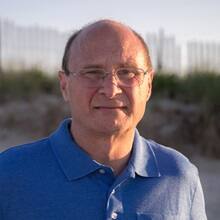
Adjunct Social Sciences Program Instructor
A great summer book is "Blink: The Power of Thinking Without Thinking" by Malcolm Gladwell and Barry Fox. It's an easy read but still academically sound in both decision theory and psychology and looks into how we make decisions. There are two types of decisions, System 1, which is made quickly, and System 2 decisions, which are slow and methodical and involve much research. Gladwell makes the case that we should go with System 1 thinking more often, especially "thin-slicing," being able to glean the most important data and decide based on that.
 Aneta Blaszczak
Aneta Blaszczak
Adjunct Language Education Program Instructor
There are several books that I will continue to recommend to everyone, and recently I have finished reading one that I am adding to the list of my recommendations: "A Matter of Death and Life" by Irvin Yalom and Marilyn Yalom. The authors spent 60+ years together, and the book recounts their final months after Marilyn had been diagnosed with cancer. Even though the subject of the book is grief and death, it will not make you sad. On the contrary, the book teaches us how to appreciate life, love, family and simple things in life. There's so much wisdom in that book that everyone will leave with some valuable lesson.
Another book that I will continue recommending is "Educated" by Tara Westover. This book confirmed my view that besides health and family, education holds the biggest value in life. The main character, Tara, against all odds, graduates from Cambridge and Harvard Universities. Her childhood is spent doing physical labor with an abusive brother and conspiracy theorist father, who also did not believe in public education. Tara's grit, resilience and determination are admirable, and once again, I think everyone will benefit from reading that book.
Sandra Dutton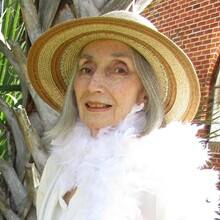
Adjunct Creative Writing Program Instructor
I have several summer reading recommendations. The first is "Every Good Boy Does Fine" by Jeremy Denk. He's a MacArthur "Genius" Fellowship winner, and he played a concert here in Savannah in February. He's one of the best pianists I've ever heard—wonderful expression, and very funny—explaining the what's and why's of whatever he's about to play, and it was magical how we all began to hear the music differently. He said he had just finished his memoir, that it would be out in a few months, so I ordered it and am enjoying it immensely, learning about his wacky family and the various music teachers he's had—some excellent, some tyrannical. I'm only on page 61, but I love, love, love this book.
I also recommend reading "A Childhood: The Biography of a Place" by Harry Crews. This is a beautiful, much-recommended book by a man who grew up poor on a tenant farm in Bacon County, Georgia. It's gritty and so honest that Mary Karr, author of the "Liars' Club," said it gave her the courage to tell her own stories. One of my favorite tales is of Crews and a Black playmate named Willodeen, both of whom loved to take the Sears Roebuck catalog and tell stories about the "perfect people" in its pages. It was in some ways a means of cutting the "perfect people" down to size, but also the beginning of Crews' storytelling, and probably great training for the writing of his many novels.
 Ginger Eager
Ginger Eager
Adjunct Humanities Instructor
This summer, I plan to read an old favorite and a couple of books that have been languishing on my to-read pile for years.
The first book I'll read is "The Art of Memoir" by Mary Karr. This one's a re-read. Karr is one of my favorite memoirists. Her voice is unmistakable: part kitchen table storyteller, part trained poet–and all rabble-rouser. She's as wise and generous in her craft book as she is in her memoirs.
Next up is Stephen King's "On Writing." Somehow, I've never read this book though it's one that writers discuss often among themselves. I do have a quote from the book memorized: "If you don't have time to read, you don't have the time (or the tools) to write. Simple as that." Ironic that's the quote I know, isn't it? I'd say it's time to read the book.
I will move into fall with James Baldwin's "The Fire Next Time." I returned to "Notes of a Native Son" after George Floyd was murdered, and I found those essays to be no less important and powerful now than when I first read them two decades ago. "The Fire Next Time" is in the form of two letters Baldwin wrote pleading with Americans to take seriously this country's legacy of racism. The book was published in the early 1960s, just as the civil rights movement was gaining traction. I will read it for the first time as Georgia moves into the 2022 gubernatorial election, a race that I feel highlights how far we've come as a nation and also how far we've yet to go.
Jean Fluary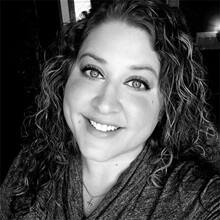
Adjunct Business Program Instructor
Daniel Pink's "Drive" is an exceptional book on the surprising truth about what motivates us. Pink discusses the secret to performance and gratification whether it is at work, school, or home. This book greatly aided me professionally and personally.
Drive unlocked my previous thoughts on motivation and taught me that motivation is deeply embedded in the basic human needs to direct our own lives, learn new things, create new things, and do better for ourselves and our world. Daniel Pink writes in-depth about three elements of true motivation- autonomy, mastery, and purpose.
My fast-paced motivation has always been present, but I was curious as to why. What is driving me? It wasn't just professional gain, monetary gain, or solely personal gain. Something deeper pushes my motivation, and this book helped me to pinpoint why I am a driven individual, and at what point could or would I be satisfied with my accomplishments.
In my roles as an educator and a director, this book helped me to identify what motivates individuals and how to tap into their potential. Different people are motivated by different things, and it is up to us to guide our teams, learners, and peers to success.
 Joshua Garrin
Joshua Garrin
Adjunct Psychology Program Instructor
For those of us who have become obsessed with the "art of letting go," no one says it better than The Minimalists: Less is more.
In "Love People, Use Things: Because the Opposite Never Works" by Joshua Fields Millburn and Ryan Nicodemus (a.k.a. "The Minimalists") explain how even the smallest efforts to declutter our lives can free up the space for us to focus on the seven essential relationships in our lives: stuff, truth, self, money, values, creativity and people.
The authors make it explicitly clear that we can move toward a life of fewer unnecessary obligations and distractions. When we do, we experience less stress, burden and overwhelm, which leads to more time for meaningful relationships and fulfilling activities. It creates more opportunities to contribute to family and community in productive ways. And it leads to more peace and contentment — despite –– the chaos that surrounds us.
An intentional life is a clear, focused and purposeful life! Just let go of some of the clutter that's weighing you down. "Because once you have less, you can make room for the right kind of more." ~ The Minimalists
David Hudson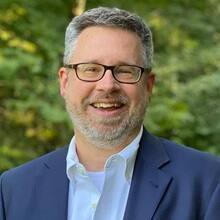
Adjunct Communication Program Instructor
I love book lists even though they are a dangerous thing for a book addict. It is even possible that I have made promises; promises not to read them, save them and add them to my cart. It is even more likely that everyone knew it was a promise I would not, could not, keep.
Of course, reading book lists is a darn sight easier than contributing to one. Does one choose the last book one has read, an old favorite, or the book one is looking forward to reading the most? Is it okay to pick a guilty pleasure? Is this an opportunity to mention an old classic or perhaps make a plug for one’s favorite poet? Does one let the season—lighter fare in summer, for example—influence the list? Absent any sort of reliable polling data on the issue, I’ll let the warm air and my current communications courses inform my choices, at least in some off-hand kind of way.
I generally come to screen adaptations after having read the book and, as such, bring all sorts of precious baggage to the show. My students and I often have very passionate discussions about adaptations we love (“The Lord of the Rings” generally tops this list) and others that disappointed us (the Percy Jackson movies are oft-cited). With that in mind, my first recommendation is “A Discovery of Witches” by Deborah Harkness, the recent BBC adaptation of which was very well received. I know, I know, a book about witches sets off some alarm bells, perhaps deservedly so. I should also admit right up front that there are vampires, too. More bells, I know, but if you’re still with me, I can promise you a rewarding and engaging mix of themes and ideas. There is, of course, a love story that, like all great love stories, feels both ancient and new. There is a certain amount of fantasy, but it is deeply rooted in science. Finally, there are despicable villains, reluctant heroes and a charming collection of characters you’d love to spend time with. Can we ask any more of our diversions?
My second pick has the distinction of being one of those rare times where I came to the book(s) via the show. I’m not sure what prompted me to start watching “Longmire” on Netflix, but it did not take long for its laconic hero, spare Wyoming setting, and mystery of the week to set its hooks in me. Folks of a certain age will remember a time when the Western genre dominated screens both large and small. “Longmire” harkens back to those days without feeling dated. I was delighted to discover that Craig Johnson’s books, on which the series is based, are more of the same in all the ways books trump their shorter, more visceral siblings. I started with “Death Without Company,” and can promise you a wry smile on almost every page.
 Daria LaFave
Daria LaFave
Adjunct Communication Program Instructor
My reading list is filled with fantasy YA novels. If you have similar interests, add "The Invisible Life of Addie LaRue" by V. E. Schwab to your TBR list. This book spoke to my very soul and broke me before putting me back together. It captivated me with its beautiful writing and enthralling storytelling. I felt EVERYTHING and lived Addie's experiences right along with her. Without giving anything away, think of a Tuck Everlasting storyline, only with a female protagonist who takes on the Devil and goes for what she wants out of life. Read this book. See what true storytelling does to your heart and soul.
If you are looking for a more traditional but extremely well-told fantasy, read "To Kill a Kingdom" by Alexandra Christo. The storyline is similar to the story of The Little Mermaid, but the twists and turns are really fun. I loved the interactions between Lira and Elian that created a realistic love-hate relationship full of quips and fun retorts. The heroine's struggle and her journey to strength and empowerment were refreshing. I could picture everyone and everything so vividly, and my heart skipped a bit a few times, thanks all to the amazing storytelling.
 Susan Holden Martin
Susan Holden Martin
Adjunct Business Program Instructor
My first recommendation is "The Code Breaker" by Walter Isaacson. This non-fiction book profiles the Nobel Prize-winning discovery (2020) by biochemist Jennifer Doudna and microbiologist Emmanuelle Charpentier of what's referred to as the CRISPR-Cas9 "genetic scissors." Their discovery allows scientists to cut DNA sequences with extreme precision. These "genetic manipulations," as they are referred to, are expected to allow scientists to cure diseases.
I'm a wee bit of a science and space nerd, and so my second book is "The Ministry for the Future" by Kim Stanley Robinson. Kim's book is a fictional look at what might happen if we continue to ignore climate change. I worked with Dr. Bruno D.V. Marino (Harvard; Biosphere II), who is a biogeochemist in grad school (MBA, 2007). At that time, Dr. Marino was working on climate change mitigation technologies. And so, this topic is of great concern to me.
 Russell Milligan
Russell Milligan
Adjunct Communication Program Instructor
I'm one of those double-fisted readers. Before I'm finished with the first one, I'm on to the second and then back to the first, switching back-n-forth until I've digested every morsel. Pure joy.
If you're on the hunt for a leadership book to read this summer, think about reading "The Spiritual Life of A Leader" by Boyd Bailey. In this fab book, Boyd gets to the heart of faith-based leadership. He discusses the foundational tenets of this model, ranging from putting on gentleness and spritzing ourselves with kindness to developing self-awareness and battling negative thinking. Plus, he gets to the nitty-gritty of application. It's the perfect read for anyone wanting to invigorate their leadership style.
For those who might be looking for ways to surrender that draining emotion of anger, consider reading "Unoffendable" by Brant Hansen. Using his charming, humorous style, he discusses giving up our "right" to be offended. He serves up ideas for letting go of anger, embracing forgiveness and choosing to be unoffendable. In a nutshell, he teaches dropping ego for humility.
"The Spiritual Life of A Leader" and "Unoffendable" are surefire ways to dazzle and delight this summer.
 Tiffany Trent
Tiffany Trent
Adjunct Creative Writing Program Instructor
My fiction recommendation is "Saint Death's Daughter" by CSE Cooney. As a recent review said, "this book filled a hole in my heart I didn't even know was there." Ostensibly about a young necromancer who must learn her craft while maneuvering familial and political intrigue, "Saint Death's Daughter" is about so much more–love, belonging, persistence and resilience in the face of disappointment. I hope more lovers of fantasy will become acquainted with Cooney's lush prose.
As for non-fiction, I recommend "On Time and Water" by Andri Snaer Magnason. Full disclosure: Andri is a friend of mine whom I met years ago at the Green Earth Book Awards. This book is a lovely meditation on time, family and the changes occurring in our world. Rich in details of his family's life in Iceland, "On Time and Water" is a balm against the destructive rush of the modern world.
James Walters
Adjunct Business Program Instructor
I enjoy books that not only impact my professional life but include lessons for my personal life. The book I recommend is "The Hard Things About Hard Things" by Ben Horowitz. In today's wicked complex world, the concerns or complications are not always straightforward or known as black and white. Ben Horowitz wrote, "one skill stands out; it's the ability to focus and make the best move when there are no good moves" (pg 59).
The book is broken down and each chapter is a stand-alone. If you feel a connection to one chapter like my favorite chapter "nobody cares," you can go back and re-read that chapter. I have read several leadership books, but what I enjoy about this book is the honesty.
When I am not reading books for life lessons, I like to read books that include Masonic references. I enjoy the whole Da Vinci Code series, but my favorite is the "Origin" By Dan Brown. This book places you in an ultramodern museum that hosts an event to reveal a life-alternating science discovery. All chaos breaks out; Robert Langdon and the museum director escape and find themselves in Barcelona looking for clues and following leads. My heart pounds during the suspense and intense moments, which makes it hard to put down. Before you know it, you have solved the mystery and moved on to the next books in the series.
Online. On campus. Choose your program from 200+ SNHU degrees that can take you where you want to go.
Alexa Gustavsen '21 is a writer at Southern New Hampshire University. Connect with her on LinkedIn.
Explore more content like this article

What is International Women's Day?

What Are New Year's Resolutions and Do They Work?
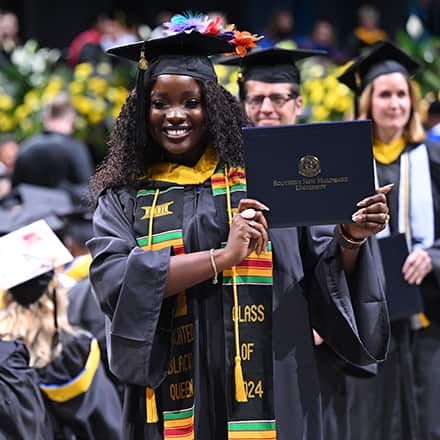
Legacies in the Making: Celebrating SNHU’s Class of 2024 at Commencement
About Southern New Hampshire University

SNHU is a nonprofit, accredited university with a mission to make high-quality education more accessible and affordable for everyone.
Founded in 1932, and online since 1995, we’ve helped countless students reach their goals with flexible, career-focused programs. Our 300-acre campus in Manchester, NH is home to over 3,000 students, and we serve over 135,000 students online. Visit our about SNHU page to learn more about our mission, accreditations, leadership team, national recognitions and awards.

